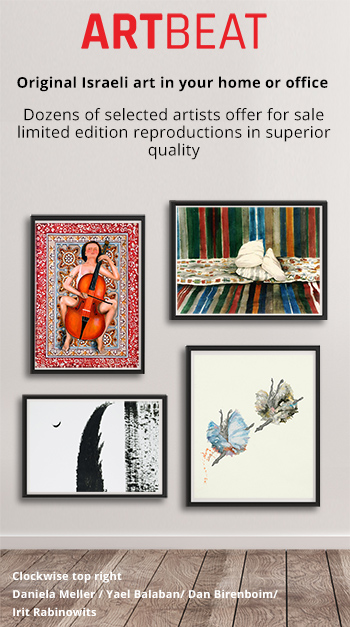Art Shows > Sheng Qi China: Fluid Witness
Sheng Qi China: Fluid Witness / Hezi Cohen Galleryטלפון - 972-03-6398788 02/07/2009 to - 31/07/2009 Sheng Qi first came to public attention in 1985 as a key part of China's ''New Art Movement''. In 1989, after the Tian'anmen Square Incident, Sheng Qi left Beijing for Europe. Before leaving, he cut off the little finger from his left hand and buried it in a flowerpot. Part protest and done also out of the need to leave a portion of himself in Chinese soil, the artists photographs of his 4-fingered left hand holding a small black and white photograph against a red background, have become the most memorable metaphor of Chinese political history and cultural reality. In 1999, the artist returned to Beijing, occupying a seminal position within the contemporary Chinese movement. Rooted in a multi-disciplinary approach, Sheng Qi continues exploring various media: from photography and installation to video and performance work, that touch Chinas sensitive issues from within a Chinese context. Opal Gallery is pleased to announce a solo exhibition of new paintings by Sheng Qi. Titled CHINA: FLUID WITNESS, the series has been developed over the last 3 years. In these paintings, Shengs focus remains centered on Chinas contemporary political history and its affects on the lives of Chinese people. Shengs survey of Chinas past and reality is largely framed by his life of 42 years. He is a witness and his paintings are his testimony. The masochistic element in his previous works has been replaced with the direct scrutiny of the infliction of Chinas social and cultural policies on its people. The paintings are depicted with dripping paint, in reds and grays, informed by unspecific yet recognizable historical experiences during the Occupation of Tibet, the Cultural Revolution and the Tiananmen Square Massacre: protesting in Lhasa, young students on the relocation trains bound for remote villages, a devastated father looking for his missing daughter in Tiananmen Square. The drips of paint invoke the idea of sweat, tears and blood. The dichromatism suggests a narrative of violence, destruction and suffering, which has unceasingly haunted the artists memory. But beneath the surface, lies an undying belief in and admiration of survival. location - Hezi Cohen Gallery Time - 02/07/2009 to - 31/07/2009 |
The content appearing on this page and the details of this exhibition are shown on the behalf of the advertisers and on their responsibility.
All rights reserved to - artbeat.co.il © Israel Art
|1|
